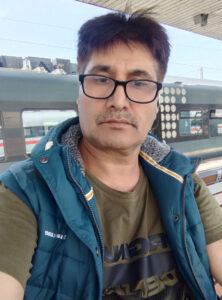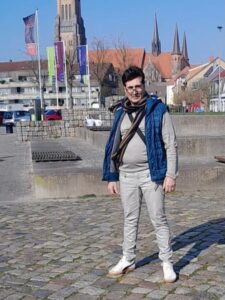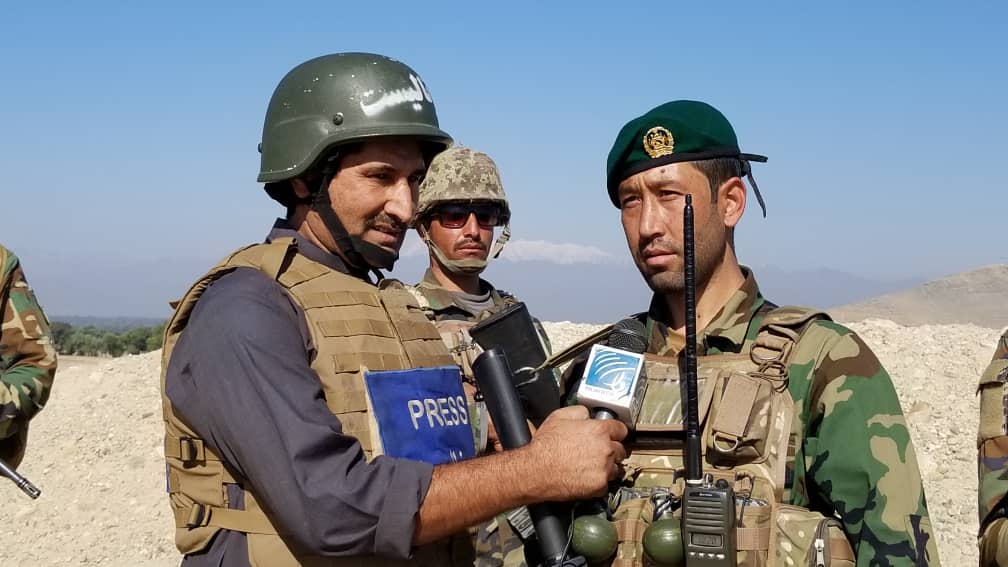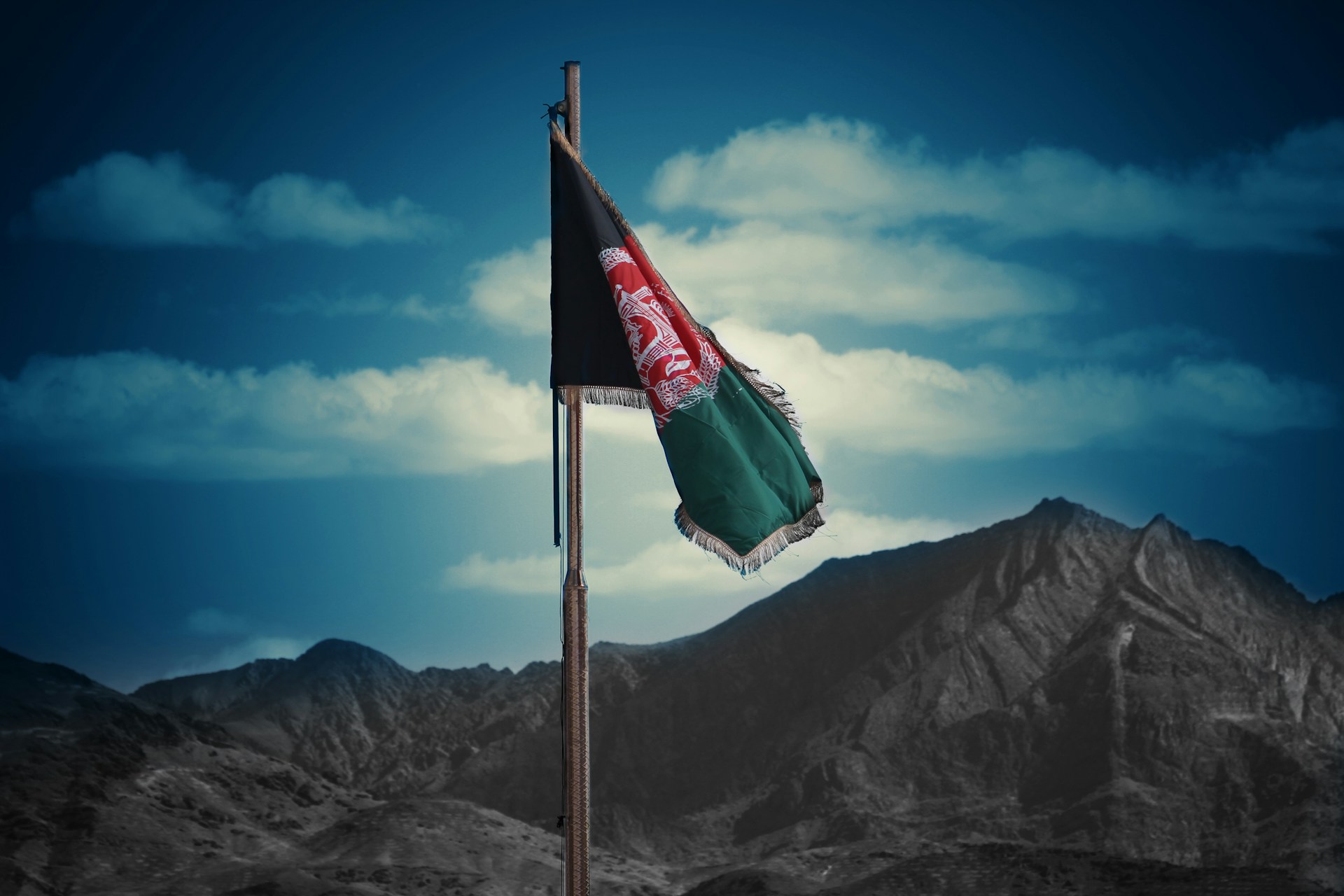On August 15, 2021, Kabul fell—with it, the hopes of an entire press corps. This is the untold story of Afghan journalists, forced to flee the only home they knew, battling fear and persecution in search of freedom.
The fall of Kabul on August 15, 2021, marked not just the collapse of the Afghan Republic but also the swift unwinding of media freedom in the country. Journalists who once played an essential role in holding power to account found themselves at the harsh mercy of the Taliban for their very existence. The Taliban viewed the free press as a remnant of Western influence, incompatible with their rule. Not all, but several media outlets over the past 20 years of democracy were funded by Western aid to support democracy in Afghanistan, in just a few hours, all of these achievements were multiplied by zero, leaving nothing behind. For many Afghan journalists, this shift brought uncertainty, fear, and an exodus in search of safety and freedom in the West.
Before the Taliban’s dramatic advance into Kabul, the security situation in northern provinces had deteriorated rapidly. Gul Shah Dost, a local journalist in Kunduz whose name has been changed per his request for security purposes, managed to escape to Kabul amidst this chaos. “I stayed in Kabul for 15 days,” he recounts. “But the situation worsened there, too.” Many government officials were trapped in guest houses in the Shar-e Naw area, their movements restricted. Like them, Dost knew he could not stay. “During the republic, I published reports on Taliban activities—many involving civilian casualties. It was natural they were unhappy with me,” he reflects.
The environment in Kabul became increasingly hostile for journalists. Fear gripped Dost as he considered his options. He began the process of applying for evacuation. “I sought humanitarian visas from Germany, the UK, Canada, the US—anywhere that could offer refuge,” he says. However, Dost faced a significant hurdle: his passport had expired. “I couldn’t go to the passport office in Kabul for an extension. If I was recognized, who knows what would have happened?” he recalls. Fortunately, a friend in Pakistan helped him extend his passport for two more years. This marked the beginning of a grueling journey.
For many Afghan journalists, Pakistan served as a critical gateway—a hub to escape Afghanistan. However, getting a visa was another nightmare. “The fee for a Pakistani visa was $40 or $60, but during this chaotic time, I had to pay $1,350,” Dost explains. Once he reached Islamabad, Dost applied for asylum in multiple countries. Germany responded, but his case dragged on longer than expected. “I stayed in Islamabad for 13 months,” he says. “I eventually arrived in Germany on August 21, 2024, the third anniversary of the Taliban taking Kabul.” His new life in Berlin began in refugee shelters before he was moved to more permanent accommodation. “I don’t know what would be next?” says Dost.
No Free Press Left
Journalists who remained in Afghanistan faced a drastically altered landscape. Gul Shah Dost notes, “No independent media exists anymore. Even in areas where a tiny number of female journalists work, they must follow the Taliban’s policies.” Economic challenges added another layer of difficulty. “The latest Taliban decrees are very concerning for free media in Afghanistan,” Dost adds. “Whatever content is produced must comply with their policies.” The Afghanistan Journalists’ Support Organization (AJSO) based in Frankfurt Germany in a recent press release states there is “a steady increase in restrictions on freedom of expression and media,”
The strict measures imposed by the Taliban dismantled what was once a vibrant media landscape. Many journalists, like Babrak Amirzada, were forced to make life-or-death decisions.
Amirzada, a camera reporter for the national Pajhwok News Agency in Nangarhar province, never thought he would have to tell his own story. “I’ve always covered others’ stories—most of them heartbreaking,” he says.
The Escape of Babrak Amirzada
It was 3:30 a.m. when Amirzada received a call. “Someone speaking in Dari told me, ‘Get out right now.'” Confused and skeptical, he asked, “Who are you?” The voice on the other end offered no clear answer. Thirty minutes later, he received another call—this time in Pashto. “This guy said, ‘You are Amirzada. We have been assigned to take you from here. What is your home address?'” Fearful of being identified, Amirzada refused to give his address. Living in a tight-knit Bihsud village community, he was afraid that even the slightest slip could put his life at risk.

He instructed the callers to wait near the Bihsud Bridge. He quickly packed his children into his car, left the keys behind, and drove to the spur-of-the-moment gathering point. “I saw a white car. We all jumped in and headed towards the Torkham border crossing,” he recalls. The crossing at Torkham presented its challenges. “Taliban were there, asking everyone to stamp their passports. But neither I nor my nine family members had passports. All we had were old paper Tazkiras, our national identity cards.”
Luck was on his side. It was still dark, and there were only a few employees at the border. “They didn’t check carefully whether we had passports,” Amirzada remembers. Upon reaching the Pakistani side, the driver handed over some papers to the police. “I told them, ‘I don’t have a passport, only these papers,'” he says through WhatsApp. The officer nodded and asked, “How many people are you?” Amirzada replied, “Ten—including me.” The officer instructed him to follow, leading them to a German lady with a translator. “She asked my name, checked it on her iPad, and directed us to another car.”
After a night filled with fear and uncertainty, they reached Islamabad. “We stayed at the Shalimar Hotel. We took COVID tests, had our photos taken for biometric data, and finally made passports.” Amirzada and his family left Pakistan on March 23 and arrived in Germany. “At the refugee center, they put colorful rings on each refugee to divide us into different shelters or camps. I stayed six days in a military camp with my kids before being moved to another.”
A New Life in Berlin
Settling into a new life was no easy feat. “I found myself in a strange environment for the first time. I am the only Muslim in this entire village,” he laughs. Finding Halal food was a challenge. “I stopped a Syrian guy using Google Translate. I told him, ‘I’m looking for Halal food.’ He helped me find a shop,” Amirzada recounts. While adapting, he also encountered amusing challenges. “I once picked up 6 kg of grapes, thinking it was 2 euros. When I got to the counter, I realized I had to pay much more!” he laughs.

Despite these lighter moments, the adjustment has been anything but smooth. “Commuting was a big challenge. I didn’t understand the bus routes or how to buy tickets. I still use Google for that,” he admits. Language remains a significant barrier. “For a long time, I didn’t eat meat, afraid it might be pork.”
Reflecting on his departure from Afghanistan, Amirzada shares a harrowing memory from August 2021. “A Taliban spokesman had announced there was no risk for journalists. With that confidence, I went out to report at the banks where huge queues had formed as people tried to withdraw money.” Along with another cameraman, Amirzada arrived at the Pashtunistan intersection in Jalalabad City, where protesters were gathering around the national flag. At least two people were killed and 12 others injured when gunmen opened fire on a crowd that had removed an Afghan Taliban flag in the eastern city of Jalalabad. “As I started filming, a 4×4 vehicle filled with Taliban fighters pulled up. They had long hair and their vehicle sticker read: ‘Khogyani,’ the name of the district, which means they belonged to that district. They jumped out, beat us with their guns, and took our cameras. They fired on protesters to disperse, and when the gunmen were distracted, my fellow cameraman and I managed to escape.”
They sought refuge at the national TV building in the nearby neighborhood. “I asked the doorkeeper to open the door. He knew me from before, so he let us in. I felt safe inside and started recording the firing from there,” he recalls. That clip, sent to the Pajhwok office in Kabul, was widely circulated by various media outlets, mostly on social media, identifying the fighters who had beaten him. “Those men were looking for me after that,” Amirzada says. “I was on the run, hiding from house to house.” In later days, “I met Attaullah Khogyani in his office,” who was the republic government’s provincial spokesman, “I shared my story with him,” where he couldn’t do anything as long as he was a remnant from the previous dysfunctional government.
The Price of Telling the Truth
Despite their hardships, Afghan journalists like Dost and Amirzada continue to navigate their new lives in exile both are in Berlin Germany, Tormented by memories of their old ones. “Don’t ask about me,” Amirzada sighs. “I’m done with it.” His children are learning German and adapting to their new environment, but he remains a stranger in a foreign ‘friendly land,’.
The Afghan press, once a symbol of hope and resistance, has all but vanished under Taliban rule. As Gul Shah Dost puts it, “With the republic gone, free media is also gone.” The journey of these journalists, marked by fear, resilience, and a relentless quest for truth, serves as a testament to the price of free speech and the profound loss felt by an entire nation.
Views: 63












